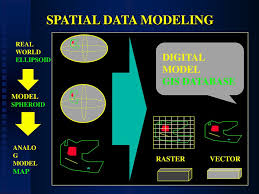
Principal speaker
Dr Douglas Kerlin
Other speakers
Alireza Ahmadvand. Tamika Lunn, Prabath Morawakage, Rose Sanderson, Shahid Ali, Ali Chauvenet, Prince Acheampong, Martin Andresen,
The stats-in-action mini-symposia on methods involving statistics are designed to showcase the variety of ways in which Griffith researchers and friends have put statistics to good use, in practice, to support an evidence-based approach to research.
This symposium provides a forum for discussing the use and analysis of spatial data for cutting-edge research. We have specifically selected abstracts from a wide range of research fields to demonstrate the variety of analyses conducted using spatial data. It is our intention that this symposium will provide a forum to hear about the kinds spatial analyses are underway across Griffith University, and to develop stronger interdisciplinary links between spatial data researchers.
Agenda
11:25 am - Welcome: Dr Douglas Kerlin
11.30 am - Evaluating equality in prescribing Novel Oral Anticoagulants (NOACs) in England: Protocol of a Bayesian small area analysis
Presenter: Alireza Ahmadvand
Atrial fibrillation (AF) is the most common cardiac arrhythmia which affects about 1.6% of the population in England. Novel Oral anticoagulants (NOACs) are approved treatments for AF that reduce the risk of stroke. In this study we aim to estimate the equality in prescribing individual NOACs with high spatial resolution in Clinical Commissioning Groups (CCGs) across England from 2013 to 2019. A Bayesian spatio-temporal model will be used to estimate and predict the trend of prescribing individual NOACs on "prescription data' as one of the indicators of health services utilisation, using small area analysis methodology.
11.50 am - Spatial dynamics of pathogen transmission in communally roosting species: implications for bat-virus dynamics in the Anthropocene
Presenter: Tamika Lunn
Spatial structure of populations determines disease dynamics. This is particularly important for communally roosting species (like bats), whose patterns of aggregation are often driven by the spatial structure of their environment. How are infection dynamics (probability of disease outbreak, magnitude and speed of epidemics, and persistence of infection) influenced by roost tree structure and total abundance in flying-fox roosts.
12.10 pm - Housing asset pricing in a spatial context
Presenter: Prabath Morawakage
Housing asset pricing is not simply based on the location and asset specific factors. Traditional models to explain the asset risk and returns that account for pricing are not efficient due to the heterogeneity and cross sectional dependence across the geographic locations. Are housing returns driven by general market factors or specific factors?
12.30 pm - Break
1.00 pm - Spatial deep dive into faecal pathogen transmission in informal settlements, Port Vila
Presenter: Rosie Sanderson
Informal settlements in Port Vila, in general, have inadequate access to water, sanitation and hygiene (WASH). This leaves them more exposed to communicable diseases like diarrheal disease. Additionally, the location and extent of informal settlements in Port Vila is not well understood, and only limited mapping is currently available. The research asks if and how faecal pathogens might be transmitted around informal settlements in Vanuatu, particularly with respect to water-related transmission pathways, including understanding where the settlements are located.
1.10 pm - Probabilistic mapping of pumped hydro energy storage sites
Presenter: Shahid Ali
The transition to low-carbon power sources due to climate has multiple developmental problems. Multi-criteria decision making (MCDM) along with geographical information systems (GIS) has been frequently used in renewable energy site selection problems. But most of the MCDM techniques don't deliver a conclusive or unique solution. What are the most suitable sites for developing the pumped hydro energy storage system that addresses the techno-environmental and socio-economic site selection problems?
1.20 pm - Prioritize the protection of ecoregions to meet international biodiversity targets
Presenter: Ali Chauvenet
Most of the terrestrial world is experiencing high rates of land conversion despite growth of the global protected area (PA) network. There is a need to assess whether the current global protection targets are achievable across all major ecosystem types and to identify those that need urgent protection. Using recent rates of habitat conversion and protection and the latest terrestrial ecoregion map, we test simple but strategic acquisition plans that prioritise ecoregions for meeting the current and future international target for protected areas.
1.40 pm - Break
2.00 pm - The life cycle determinants of private rental housing demand: A spatial panel econometric approach
Presenter: Prince Acheampong
The Australian population is aging, and different household forms are rapidly developing. At the same time, rental prices are outpacing growth in income. These dynamics have the potential to affect future demand for private rental housing in Australia. However, no systematic study has been conducted yet on the impact of these factors on the demand for private rental housing in Australia.
What are the key components of the family life cycle that drive the demand for private rental housing?
2.20 pm - Spatial point pattern analysis in a criminological context
Presenter: Martin Andresen
Most human activities, including crime, concentrate in space. There is a need to understand how/when/if spatial crime patterns are different from one another and not theoretical distributions such as randomness. Are the spatial patterns of crime types similar enough to merge data?
2:40 - General Discussion and Close
You can attend all the sessions or just those of interest to you by logging on at the appropriate time.
Prize
We thank the Statistical Society of Aust (Inc) and Qld CyberInfrastructure Foundation (QCIF) for supplying prizes for the presenters.
Further Details
Please follow the below link for a full breakdown of each discussion.
Spatial Data Analysis - Book of Abstracts v2
Event categories
RSVP
RSVP on or before Monday 16 November 2020 12.29 pm, by email RED@griffith.edu.au , or via https://events.griffith.edu.au/d/m7q5wg/4W